In Focus This Week
Election Law Navigator
New online tool to assist judges and the public with navigating state election laws
By M. Mindy Moretti
electionline.org
The U.S. election system is decentralized. It’s part of the uniqueness of the system as well as what makes it so secure. It’s can also be what causes some headaches.
“One of the biggest hurdles in election litigation is the complexity of state election codes. The country doesn’t have one set of election laws; instead, it has a collection of election laws developed across all of the states and territories,” said James Alcorn, senior director, Election Law Program, William & Mary School of Law. “About 10 years ago, we lamented that no single, free resource effectively captures the complexity of this landscape. This presents a real challenge for state judges, many of whom operate without law clerks. In lots of fields, judges use “benchbooks” to help them navigate complex areas of law.”
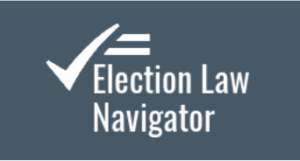 Enter the Election Law Navigator, a free, comprehensive online tool that compiles election statutes, regulations and advisory opinions all in one place.
Enter the Election Law Navigator, a free, comprehensive online tool that compiles election statutes, regulations and advisory opinions all in one place.
Released by the Election Law Program (ELP), a joint project of William & Mary Law School and the National Center for State Courts (NCSC), the tool is designed to help judges, lawyers, members of the media, elections officials and the public efficiently navigate complex state election statutes.
“The Election Law Navigator is a game-changer that will make it far easier for election administrators, lawyers, and scholars to understand what’s in each state’s election law and where to find it. It’s hard to imagine the number of hours that went into this comprehensive project. Worthy of your bookmark!” said Richard Hasen, Gary T. Schwartz Endowed Chair in Law, Professor of Political Science (by courtesy) and Director, Safeguarding Democracy Project at UCLA.
Powered by a human-checked AI model, the Navigator organizes legal documents by topic and features a custom election-focused search tool; state-to-state comparison capability; and 100+ election-specific topic tags for quick access to relevant content. Acknowledging the concerns about AI, Alcorn noted that AI is a powerful tool when used properly, but it requires good governance.
“For now, we’re using AI to help organize the information in the system as opposed to generating content or summarizing information,” Alcorn said. “Our roadmap prioritizes accuracy; therefore, we are taking a cautious approach to how we integrate AI into the tool.”
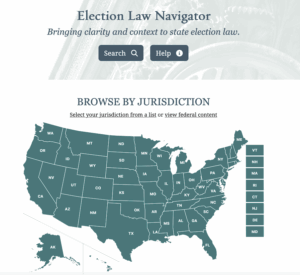 One of the most laborious aspects of building a legal research system is categorizing all of the laws, something they started by mobilizing law students to do Alcorn explained. The issue was compounded by the custom, detailed set of 100+ election law topic tags.
One of the most laborious aspects of building a legal research system is categorizing all of the laws, something they started by mobilizing law students to do Alcorn explained. The issue was compounded by the custom, detailed set of 100+ election law topic tags.
“We recognize that it is important to accurately and timely categorize and update the laws in the Navigator. We developed a customized AI tool to help us identify and categorize election law material. For example, some state laws that mention elections or ballots are in fact related to corporate board of directors or homeowners’ association elections. AI can help weed out material that is not related to state election codes,” Alcorn explained. “That said, even where we use AI to help categorize election laws, trained law students verify all material before it is posted to the site.”
While the Navigator was developed as a nonpartisan resource for judges, this extensive, one-of-a-kind database is a valuable tool for anyone interested in election laws with more than 30,000 statutes, regulations, advisory opinions, and related material from all 50 states.
“I love this. It’s easy to navigate, and while doing this for 10 years has made me a wiz at navigating horrible state websites, it is nice not to have to,” said Jessica Huseman, editorial director at Votebeat. “This is also easier to link to and reference in reporting. Rather than linking to a massive block of text, this allows readers to go directly to the necessary context and compare the referenced citation to other jurisdictions if they want to dive deeper. It also makes it easy for us to compare the states we cover. It’s not a perfect tool, but it gets closer to making state election law navigable than any other effort I’ve seen so far.”
Although it just launched late last month, the Navigator is far from in its final form.
“We have lots of ideas to build upon the success of the Navigator and have already heard from numerous users across the country about ways to make the Navigator more useful,” Alcorn said. “For example, one judge loves the state comparison tool and had suggestions to enhance it: in addition to displaying selected laws next to each other, could we display the similarities and differences between their phrasing? Could we help users find the most similar laws across the country on a specific topic? We’ve prototyped these and several other enhancements to the Navigator.”
During an early live demo, participants from states like Michigan and Nevada suggested ways that the site could reflect peculiarities in those states’ election ecosystems (in Michigan, the impact of municipal law; in Nevada the precedential value of unpublished case law). A participant from Arizona pointed out that they should include the Arizona Election Procedures Manual.
Alcorn said they are also considering adding a litigation tracker. The Election Law Program has been working to quantify the volume of election litigation at the docket level to determine where election litigation arises, in which courts, and in front of which judges. As the Navigator grows and expands, they’ll be looking at how a litigation tracker might be incorporated.
“The Navigator is a living platform that will allow us to innovate and build enhancements into the future,” Alcorn said. “Anyone with ideas on enhancing their state’s resources is encouraged to reach out to us through the Navigator’s contact page[here].”
The Navigator is now available at www.electionlawnavigator.org. To learn more about the tool, watch a brief YouTube video.
electionline Holiday Schedule
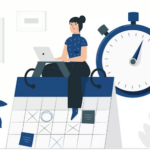 During the upcoming holiday season, electionline–both the Daily and the Weekly–will be making some temporary changes to their schedules. Here’s what we’ve got for now!
During the upcoming holiday season, electionline–both the Daily and the Weekly–will be making some temporary changes to their schedules. Here’s what we’ve got for now!
Electionline Daily News: The Daily News will NOT publish December 24-26, December 31 or January 1, 2026. From December 22-January 2, 2026 on the days the Daily does post, it will post by 10am Eastern. Additionally, the Daily News will publish by 10am Eastern on Wednesday, December 17.
ElectionlineWeekly: The Weekly will not publish on December 25 or January 1, 2026. It will however publish on Tuesday, December 30 and feature our always much anticipated In & Out List.
electionline Merch
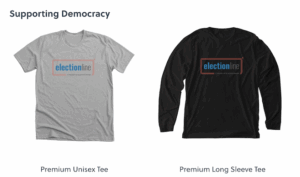 You’ve asked for it, well now you’ve got it! Just in time for all of your holiday gift-giving. We’ve opened up an electionline merch store using Bonfire. Currently we’re offering a couple of different t-shirts, a long-sleeve t-shirt and a hoodie.
You’ve asked for it, well now you’ve got it! Just in time for all of your holiday gift-giving. We’ve opened up an electionline merch store using Bonfire. Currently we’re offering a couple of different t-shirts, a long-sleeve t-shirt and a hoodie.
Election News This Week
 Federal Update: A repurposed IT system being used by the Department of Homeland Security presents “unacceptable risks” to the nation’s eligible voters, according to a group of secretaries of state who this week signed off on a letter opposing a recent proposal by the federal agency. The remarks, which include the signatures of a dozen secretaries of state, mostly from states run by Democrats, are a 29-page protest against a disclosure by DHS that it plans to codify its repurposing of a system originally designed to check immigration statuses and verify benefits eligibility. The arcane and purportedly unwieldy system, called the Systematic Alien Verification for Entitlements Program, is subject to numerous legal changes under DHS’s proposal, including that it would be used not for its original narrow purpose, but allow bulk searches and searches of “individuals that are U.S. citizens by birth” to find ineligible voters and instances of voter fraud. The secretaries of state claim in their letter that the modified system will allow the federal government to claim additional authority for administering elections, an authority the Constitution grants the states, and expose “hundreds of millions of Americans’ private data to cyberattack and misuse.”
Federal Update: A repurposed IT system being used by the Department of Homeland Security presents “unacceptable risks” to the nation’s eligible voters, according to a group of secretaries of state who this week signed off on a letter opposing a recent proposal by the federal agency. The remarks, which include the signatures of a dozen secretaries of state, mostly from states run by Democrats, are a 29-page protest against a disclosure by DHS that it plans to codify its repurposing of a system originally designed to check immigration statuses and verify benefits eligibility. The arcane and purportedly unwieldy system, called the Systematic Alien Verification for Entitlements Program, is subject to numerous legal changes under DHS’s proposal, including that it would be used not for its original narrow purpose, but allow bulk searches and searches of “individuals that are U.S. citizens by birth” to find ineligible voters and instances of voter fraud. The secretaries of state claim in their letter that the modified system will allow the federal government to claim additional authority for administering elections, an authority the Constitution grants the states, and expose “hundreds of millions of Americans’ private data to cyberattack and misuse.”
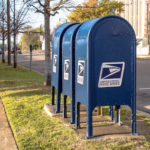 News from the Postal Service: Via the Federal Register, the Postal Service is adding section 608.11, “Postmarks and Postal Possession,” to the Domestic Mail Manual (DMM). This new section defines postmarks, identifies the types of Postal Service markings that qualify as postmarks, and describes the circumstances under which those markings are applied. It also advises customers of how to obtain evidence of the date on which the Postal Service accepts possession of their mailings. This new language in the DMM does not change any existing postal operations or postmarking practices, but is instead intended to improve public understanding of postmarks and their relationship to the date of mailing. The new rule takes effect December 24.
News from the Postal Service: Via the Federal Register, the Postal Service is adding section 608.11, “Postmarks and Postal Possession,” to the Domestic Mail Manual (DMM). This new section defines postmarks, identifies the types of Postal Service markings that qualify as postmarks, and describes the circumstances under which those markings are applied. It also advises customers of how to obtain evidence of the date on which the Postal Service accepts possession of their mailings. This new language in the DMM does not change any existing postal operations or postmarking practices, but is instead intended to improve public understanding of postmarks and their relationship to the date of mailing. The new rule takes effect December 24.
 Podcast News: High Turnout Wide Margins recently traveled to Fort Lauderdale, Florida, for the 2025 summer convening of the Partnership for Large Election Jurisdictions [PLEJ], and spoke with election officials from across the county — and world — about the elections work they are doing in their communities. In this episode, hosts Eric Fey and Brianna Lennon speak with Paul Lux, the Okaloosa County Supervisor of Elections, and Mark Earley, the Supervisor of Elections in Leon County. They spoke about how the lists of registered voters are already maintained in Florida, and about how the Safeguard American Voter Eligibility, or SAVE Act — a proposed piece of federal legislation that would require proof of citizenship to vote in federal elections — could impact that process. On the most recent episode of the Election Science Office Hours podcast, join host R. Michael Alvarez and USC prof Christian Grose, as they go over the November 4, 2025 election results. What happened in the major races across the US on November 4th, including in New York City, New Jersey, and Virginia. They also focus attention on California’s Proposition 50. What do these election results mean, both for where American politics stands today, and for what we might expect in the 2026 midterm elections? Anchorage, Alaska, is pioneering mobile voting, allowing voters to cast ballots for municipal elections from their phones. If successful, Anchorage could offer a blueprint for the future of voting across America. But with election mistrust at record highs, will voters have faith in the accuracy of mobile votes? To discuss the latest news and the future of voting by phone, Terms of Engagement, co-hosts Archon Fung and Stephen Richer were joined by Michelle Feldman, political director at Mobile Voting, a nonprofit, nonpartisan initiative working to make voting easier with expanded access to mobile voting.
Podcast News: High Turnout Wide Margins recently traveled to Fort Lauderdale, Florida, for the 2025 summer convening of the Partnership for Large Election Jurisdictions [PLEJ], and spoke with election officials from across the county — and world — about the elections work they are doing in their communities. In this episode, hosts Eric Fey and Brianna Lennon speak with Paul Lux, the Okaloosa County Supervisor of Elections, and Mark Earley, the Supervisor of Elections in Leon County. They spoke about how the lists of registered voters are already maintained in Florida, and about how the Safeguard American Voter Eligibility, or SAVE Act — a proposed piece of federal legislation that would require proof of citizenship to vote in federal elections — could impact that process. On the most recent episode of the Election Science Office Hours podcast, join host R. Michael Alvarez and USC prof Christian Grose, as they go over the November 4, 2025 election results. What happened in the major races across the US on November 4th, including in New York City, New Jersey, and Virginia. They also focus attention on California’s Proposition 50. What do these election results mean, both for where American politics stands today, and for what we might expect in the 2026 midterm elections? Anchorage, Alaska, is pioneering mobile voting, allowing voters to cast ballots for municipal elections from their phones. If successful, Anchorage could offer a blueprint for the future of voting across America. But with election mistrust at record highs, will voters have faith in the accuracy of mobile votes? To discuss the latest news and the future of voting by phone, Terms of Engagement, co-hosts Archon Fung and Stephen Richer were joined by Michelle Feldman, political director at Mobile Voting, a nonprofit, nonpartisan initiative working to make voting easier with expanded access to mobile voting.
 Sticker News: Butte County, California fourth grader Judd Hallen has won the “I Voted” sticker contest following a public vote. The Butte County Clerk and Registrar of Voters, Keaton Denlay, announced the winner this week. The sticker contest initially received 164 artwork submissions from local youth, ranging from kindergarten to 12th grade. Then, six designs were released for a community vote on Nov. 10. Judd’s design stole the hearts of the voters, winning the contest with the most votes. Her sticker will now be used for the 2026/2027 election cycle. “Thank you to all of our Butte County youth who submitted their wonderful artwork, and a special congratulations to our finalists,” said Denlay.
Sticker News: Butte County, California fourth grader Judd Hallen has won the “I Voted” sticker contest following a public vote. The Butte County Clerk and Registrar of Voters, Keaton Denlay, announced the winner this week. The sticker contest initially received 164 artwork submissions from local youth, ranging from kindergarten to 12th grade. Then, six designs were released for a community vote on Nov. 10. Judd’s design stole the hearts of the voters, winning the contest with the most votes. Her sticker will now be used for the 2026/2027 election cycle. “Thank you to all of our Butte County youth who submitted their wonderful artwork, and a special congratulations to our finalists,” said Denlay.
Personnel News: Lisette Gracia is the new Lorain County, Ohio board of elections director. The League of Women Voters of Williamson County, Tennessee recently announced Williamson County Election Commission Chairman Jonathan Duda as its 2025 Election Hero, in celebration of Election Hero Day. Sara Bruckman is the new Brookfield, Wisconsin city clerk. New Jersey Gov.-elect Mikie Sherrill announced that running mate and Lt. Gov.-elect Dale Caldwell will serve as secretary of state. Jenny Wooten is the new director of the South Carolina Election Commission. This week, outgoing New Jersey Lieutenant Governor and Secretary of State Tahesha Way officially launched her campaign for Congress.
Ballot Measures, Legislation & Rulemaking
 Federal Legislation: Congresswoman Eleanor Holmes Norton (D-DC) introduced the District of Columbia Special Elections Home Rule Act, which would give the District complete authority to set the date of special elections for local offices, as other jurisdictions already have. The bill would remove a limitation on the District that is not only inconsistent with the self-government authority granted by the Home Rule Act, but is also counterproductive. This bill would strengthen the District’s home-rule authority and does not require statehood. “Originally, the Home Rule Act required the Board of Elections to hold special elections on the first Tuesday more than 114 days from when the vacancy occurred,” Norton said. “This inflexibility led to special elections being held on religious holidays and forced the District to hold a special election separate from an upcoming general election, costing taxpayers hundreds of thousands of dollars in unnecessary extra costs. A 2012 law I got enacted requires the Board of Elections to hold a special election on a Tuesday occurring between 70 and 174 days after the vacancy. This bill would provide even greater flexibility for the District.”
Federal Legislation: Congresswoman Eleanor Holmes Norton (D-DC) introduced the District of Columbia Special Elections Home Rule Act, which would give the District complete authority to set the date of special elections for local offices, as other jurisdictions already have. The bill would remove a limitation on the District that is not only inconsistent with the self-government authority granted by the Home Rule Act, but is also counterproductive. This bill would strengthen the District’s home-rule authority and does not require statehood. “Originally, the Home Rule Act required the Board of Elections to hold special elections on the first Tuesday more than 114 days from when the vacancy occurred,” Norton said. “This inflexibility led to special elections being held on religious holidays and forced the District to hold a special election separate from an upcoming general election, costing taxpayers hundreds of thousands of dollars in unnecessary extra costs. A 2012 law I got enacted requires the Board of Elections to hold a special election on a Tuesday occurring between 70 and 174 days after the vacancy. This bill would provide even greater flexibility for the District.”
Congressman Chris Deluzio (D-Pennsylvania) and Congressman David Valadao (R-California) reintroduced the Strengthening Election Cybersecurity to Uphold Respect for Elections through Independent Testing (SECURE IT) Act. This bipartisan bill would require that voting systems undergo simulated cyberattacks as part of their standard certification process to help bolster the security of our election systems from foreign and domestic bad actors. While federal law requires the Election Assistance Commission (EAC) to test and certify voting system hardware and software, current regulations under the Help America Vote Act of 2002 do not explicitly mandate penetration testing—a key cybersecurity practice that helps identify system vulnerabilities.The SECURE IT Act strengthens election security by directing the EAC to incorporate penetration testing into its certification process and establish a voluntary coordinated vulnerability disclosure program, enabling independent researchers to examine election systems for potential cybersecurity risks. “We’ve got to do everything we can to shore up America’s cybersecurity and voting systems and help make sure they remain strong and secure,” said Deluzio. “I’m proud that this bipartisan bill will help identify and fix voting system vulnerabilities and conduct important system testing. We must make sure America’s democratic infrastructure can weather any and all attacks from our adversaries.”
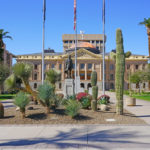 Arizona: Sen. John Kavanagh (R-Fountain Hills), is seeking to alter a law so that future supervisors never have to worry that local elections officials are being asked to certify election returns — even when they question the accuracy. Existing law requires county supervisors after each election to “canvass” the results. A similar requirement exists for cities and towns that conduct their own election. The problem with that, according to some officials who are in that position, is they are being asked to certify the results as accurate, under penalty of jail if they refuse. “I was on a town council where I had to certify an election,” said the Fountain Hills Republican. “I had no idea how the election was run,” he said. “I didn’t run the election.” His legislation seeks to get around that by saying that supervisors and other officials only “acknowledge without prejudice” the results of the election. Kavanagh said his legislation would allow supervisors to go ahead and conduct the legally required canvass while not conceding that the results are accurate.
Arizona: Sen. John Kavanagh (R-Fountain Hills), is seeking to alter a law so that future supervisors never have to worry that local elections officials are being asked to certify election returns — even when they question the accuracy. Existing law requires county supervisors after each election to “canvass” the results. A similar requirement exists for cities and towns that conduct their own election. The problem with that, according to some officials who are in that position, is they are being asked to certify the results as accurate, under penalty of jail if they refuse. “I was on a town council where I had to certify an election,” said the Fountain Hills Republican. “I had no idea how the election was run,” he said. “I didn’t run the election.” His legislation seeks to get around that by saying that supervisors and other officials only “acknowledge without prejudice” the results of the election. Kavanagh said his legislation would allow supervisors to go ahead and conduct the legally required canvass while not conceding that the results are accurate.
 District of Columbia: Councilmember Wendell Felder (D- Ward 7) is introducing emergency legislation to delay ranked choice voting’s implementation, arguing the city simply isn’t prepared. Initiative 83, overwhelmingly approved by District voters in 2024 called for the implementation of ranked choice voting and open primaries. Citywide the initiative was approved 73% to 27% and in Felder’s own ward it was approved 70% to 30%. “Residents deserve city leaders to do their due diligence,” Felder told 7News. “My legislation is not a stop or a pause to ranked-choice voting. What it does is require the Board of Elections to fully conduct a needs assessment. There’s no implementation plan. If you go on the BOE website, it says ranked-choice voting is ‘coming soon,’ but there’s no community outreach or awareness plan.” Supporters of the new system say it ensures winners have broader support and helps prevent vote-splitting among similar candidates. But opponents warn it could confuse voters, strain the city’s already stretched elections office, and create uncertainty heading into what is expected to be one of D.C.’s most competitive mayoral races in decades. Felder withdrew the legislation amid uncertainty about its fiscal impact, but said he intends to “put in the work” to move it forward at a later meeting.
District of Columbia: Councilmember Wendell Felder (D- Ward 7) is introducing emergency legislation to delay ranked choice voting’s implementation, arguing the city simply isn’t prepared. Initiative 83, overwhelmingly approved by District voters in 2024 called for the implementation of ranked choice voting and open primaries. Citywide the initiative was approved 73% to 27% and in Felder’s own ward it was approved 70% to 30%. “Residents deserve city leaders to do their due diligence,” Felder told 7News. “My legislation is not a stop or a pause to ranked-choice voting. What it does is require the Board of Elections to fully conduct a needs assessment. There’s no implementation plan. If you go on the BOE website, it says ranked-choice voting is ‘coming soon,’ but there’s no community outreach or awareness plan.” Supporters of the new system say it ensures winners have broader support and helps prevent vote-splitting among similar candidates. But opponents warn it could confuse voters, strain the city’s already stretched elections office, and create uncertainty heading into what is expected to be one of D.C.’s most competitive mayoral races in decades. Felder withdrew the legislation amid uncertainty about its fiscal impact, but said he intends to “put in the work” to move it forward at a later meeting.
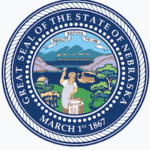 Nebraska Ballot Measure: A new ballot measure seeks to raise the threshold of Nebraska lawmakers necessary to overturn or alter successful voter initiatives. Currently, two-thirds of the state legislature (33 lawmakers) are required to reject or change any initiative passed by voters at the ballot box. If the Respect Nebraska Voters ballot initiative reaches the November 2026 ballot and passes, four-fifths of the legislature (39 lawmakers) would be required. The ballot committee filed language with the Secretary of State’s office November 20 for a constitutional ballot initiative. The petition will need to collect signatures from 10% of registered voters statewide, including at least 5% of voters in 38 of the state’s counties, by the first week of July to qualify. The change to the state constitution would also require the same four-fifths threshold for the passage of new laws affecting the initiative and referendum process. Additional protections would also be placed around the people’s ability to bring initiatives. With the language filed, the initiative will now be reviewed by the Revisor of Statutes office. Once revisions are made and the final language is established, the campaign will host a public launch for the signature gathering phase of the campaign.
Nebraska Ballot Measure: A new ballot measure seeks to raise the threshold of Nebraska lawmakers necessary to overturn or alter successful voter initiatives. Currently, two-thirds of the state legislature (33 lawmakers) are required to reject or change any initiative passed by voters at the ballot box. If the Respect Nebraska Voters ballot initiative reaches the November 2026 ballot and passes, four-fifths of the legislature (39 lawmakers) would be required. The ballot committee filed language with the Secretary of State’s office November 20 for a constitutional ballot initiative. The petition will need to collect signatures from 10% of registered voters statewide, including at least 5% of voters in 38 of the state’s counties, by the first week of July to qualify. The change to the state constitution would also require the same four-fifths threshold for the passage of new laws affecting the initiative and referendum process. Additional protections would also be placed around the people’s ability to bring initiatives. With the language filed, the initiative will now be reviewed by the Revisor of Statutes office. Once revisions are made and the final language is established, the campaign will host a public launch for the signature gathering phase of the campaign.
 New York: New York State Senator Pete Harckham and Assemblyman Jeffrey Dinowitz introduced legislation that will protect residents from civil arrest while going to, remaining at or returning from polling places in New York. Civil arrests supported by a judicial warrant or a court order will still be allowable under this new bill, however. The new bill was prompted by the numerous extrajudicial arrests being made by U.S. Immigration and Customs Enforcement agents around the country. Those arrests, in homes, workplaces, schools, college campuses and immigration courts, along with traffic stops on roadways, have included citizens and non-citizens alike, green card holders, asylum seekers and children, some held incommunicado for days. The legislation (S.8596 / Assembly bill number still pending), which amends the state’s Civil Rights Law, Judiciary Law and Election Law, states that residents who are present at polling places and there in “good faith” are “privileged” from civil arrest, and that it is a contempt of court and false imprisonment for anyone in violation of these proposed protections who makes or willfully assists in a prohibited arrest. In a sense, the new bill simply grants lawful, state authorized protections to residents that already exist regarding courts and school property. During elections polling sites are an extension of state property being used for governance, after all. However, the legislation does not pertain to law enforcement professionals acting lawfully in their duty to maintain safety and order regardless of the nature of the property or premises.
New York: New York State Senator Pete Harckham and Assemblyman Jeffrey Dinowitz introduced legislation that will protect residents from civil arrest while going to, remaining at or returning from polling places in New York. Civil arrests supported by a judicial warrant or a court order will still be allowable under this new bill, however. The new bill was prompted by the numerous extrajudicial arrests being made by U.S. Immigration and Customs Enforcement agents around the country. Those arrests, in homes, workplaces, schools, college campuses and immigration courts, along with traffic stops on roadways, have included citizens and non-citizens alike, green card holders, asylum seekers and children, some held incommunicado for days. The legislation (S.8596 / Assembly bill number still pending), which amends the state’s Civil Rights Law, Judiciary Law and Election Law, states that residents who are present at polling places and there in “good faith” are “privileged” from civil arrest, and that it is a contempt of court and false imprisonment for anyone in violation of these proposed protections who makes or willfully assists in a prohibited arrest. In a sense, the new bill simply grants lawful, state authorized protections to residents that already exist regarding courts and school property. During elections polling sites are an extension of state property being used for governance, after all. However, the legislation does not pertain to law enforcement professionals acting lawfully in their duty to maintain safety and order regardless of the nature of the property or premises.
 Wisconsin Rulemaking: The Wisconsin Elections Commission has agreed to adjust an order that governs how the city of Madison should run its elections. In its prior order, the commission told Madison to create poll books no earlier than a week before Election Day so the books will be more up to date. That order also said Madison must receive those books from the printer no later than the Friday before Election Day. Now, Madison’s newly-appointed clerk Lydia McComas has asked for that timeline to be pushed back even later to accommodate a new printing vendor. At McComas’ request, the commission voted 6-0 this week to change the deadline for creating the poll books to no earlier than the Friday before an election. The modified order will also give the city more time to get those books from the printer by mandating they be received no later than the Sunday before an election. That extended timeline should help with keeping track of returned ballots, by ensuring that more poll books have time to be stamped with an “absentee ballot returned” watermark, McComas wrote to the commission.
Wisconsin Rulemaking: The Wisconsin Elections Commission has agreed to adjust an order that governs how the city of Madison should run its elections. In its prior order, the commission told Madison to create poll books no earlier than a week before Election Day so the books will be more up to date. That order also said Madison must receive those books from the printer no later than the Friday before Election Day. Now, Madison’s newly-appointed clerk Lydia McComas has asked for that timeline to be pushed back even later to accommodate a new printing vendor. At McComas’ request, the commission voted 6-0 this week to change the deadline for creating the poll books to no earlier than the Friday before an election. The modified order will also give the city more time to get those books from the printer by mandating they be received no later than the Sunday before an election. That extended timeline should help with keeping track of returned ballots, by ensuring that more poll books have time to be stamped with an “absentee ballot returned” watermark, McComas wrote to the commission.
Legal Updates
 Federal Litigation: The U.S. Department of Justice has sued six additional states – Delaware, Maryland, New Mexico, Rhode Island, Vermont, and Washington – for access to the states’ complete voter data. The department announced it was suing the states over their “failure” to produce statewide voter registration lists. It has portrayed the litigation as part of an effort to ensure the security of elections, but Democratic officials have raised concerns over how the data will be used and whether the department will follow privacy laws in protecting it. This week’s actions bring to at least 14 the number of states the Justice Department has sued in its quest for voter information. “Our federal elections laws ensure every American citizen may vote freely and fairly,” said Assistant Attorney General Harmeet Dhillon of the department’s Civil Rights Division. “States that continue to defy federal voting laws interfere with our mission of ensuring that Americans have accurate voter lists as they go to the polls, that every vote counts equally, and that all voters have confidence in election results.” Some states have sent the department redacted versions of their voter lists, which in many cases are also available to the public. But the Justice Department also has requested copies that contain personally identifiable information, including voters’ names, birth dates, addresses and driver’s license numbers or partial Social Security numbers.
Federal Litigation: The U.S. Department of Justice has sued six additional states – Delaware, Maryland, New Mexico, Rhode Island, Vermont, and Washington – for access to the states’ complete voter data. The department announced it was suing the states over their “failure” to produce statewide voter registration lists. It has portrayed the litigation as part of an effort to ensure the security of elections, but Democratic officials have raised concerns over how the data will be used and whether the department will follow privacy laws in protecting it. This week’s actions bring to at least 14 the number of states the Justice Department has sued in its quest for voter information. “Our federal elections laws ensure every American citizen may vote freely and fairly,” said Assistant Attorney General Harmeet Dhillon of the department’s Civil Rights Division. “States that continue to defy federal voting laws interfere with our mission of ensuring that Americans have accurate voter lists as they go to the polls, that every vote counts equally, and that all voters have confidence in election results.” Some states have sent the department redacted versions of their voter lists, which in many cases are also available to the public. But the Justice Department also has requested copies that contain personally identifiable information, including voters’ names, birth dates, addresses and driver’s license numbers or partial Social Security numbers.
Four states agreed to settle lawsuits against the federal government over access to voters’ citizenship data, ending a dispute that began with the Biden administration in advance of the 2024 presidential election. Officials in Florida, Indiana, Iowa and Ohio entered the settlement with the Department of Homeland Security and Secretary Kristi Noem roughly a year after the states individually sued the agency under President Joe Biden. They had alleged the previous administration was withholding information about citizenship status that they needed to determine whether thousands of registered voters were actually eligible to cast a ballot. Each of the states could soon run searches for thousands of voters using names, birthdays and Social Security numbers through the federal government’s Systematic Alien Verification for Entitlements program. It has been significantly upgraded under the Trump administration. In turn, the settlement reached Friday says the states may share driver’s license records with the Department of Homeland Security “to assist in improving and modernizing” its database. As part of the settlement, Florida, Indiana, Iowa and Ohio will develop a memorandum of understanding with the federal government within 90 days on use of the SAVE program. The settlement also dictates that they will negotiate a new information-sharing agreement for “for the purpose of improving” the SAVE system. That may include providing DHS with 1,000 “randomly selected driver’s license records from their state” within 90 days.
 Alabama: A Mobile election worker is accused of threatening to kill workers at the probate court, according to the Mobile County Sheriff’s Office. According to jail records, 43-year-old Robert Allen Jr. is charged with making a terroristic threat. MCSO told FOX10 News Allen previously worked at the polls during the general election but was told he could not work during the run-off. Authorities said Allen was mad that he was not able to work during the run-off and called the probate court and said if he wasn’t allowed to work the next election, he was going to kill everyone there.
Alabama: A Mobile election worker is accused of threatening to kill workers at the probate court, according to the Mobile County Sheriff’s Office. According to jail records, 43-year-old Robert Allen Jr. is charged with making a terroristic threat. MCSO told FOX10 News Allen previously worked at the polls during the general election but was told he could not work during the run-off. Authorities said Allen was mad that he was not able to work during the run-off and called the probate court and said if he wasn’t allowed to work the next election, he was going to kill everyone there.
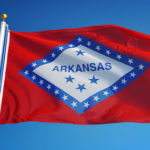 Arkansas: A filing in federal court in Fayetteville on December 1 shows that Arkansas intends to dispute a recent court ruling. The notice, on behalf of Secretary of State Cole Jester, states that Arkansas will appeal a recent temporary injunction. The November injunction held that changes to the state’s ballot referendum process enacted during the 95th General Assembly of 2025 will not take effect until the court rules on the case challenging them. The legislature passed a series of bills in its most recent session, signed into law by Gov. Sarah Huckabee Sanders, that placed restrictions on how petitions could be drafted and signatures collected. The League of Women Voters of Arkansas, Save AR Democracy, Bonnie Heather Miller and Danielle Quesnell filed suit in April, asking for these laws to be overturned. The appeal is being filed in the United States Court of Appeals for the Eighth Circuit. The secretary said the changes to the law were a matter of integrity. “We believe success in the Eighth Circuit is a critical opportunity to protect the integrity of the ballot initiative process,” Jester said. “I am thankful for the excellent representation by the Arkansas Attorney General.”
Arkansas: A filing in federal court in Fayetteville on December 1 shows that Arkansas intends to dispute a recent court ruling. The notice, on behalf of Secretary of State Cole Jester, states that Arkansas will appeal a recent temporary injunction. The November injunction held that changes to the state’s ballot referendum process enacted during the 95th General Assembly of 2025 will not take effect until the court rules on the case challenging them. The legislature passed a series of bills in its most recent session, signed into law by Gov. Sarah Huckabee Sanders, that placed restrictions on how petitions could be drafted and signatures collected. The League of Women Voters of Arkansas, Save AR Democracy, Bonnie Heather Miller and Danielle Quesnell filed suit in April, asking for these laws to be overturned. The appeal is being filed in the United States Court of Appeals for the Eighth Circuit. The secretary said the changes to the law were a matter of integrity. “We believe success in the Eighth Circuit is a critical opportunity to protect the integrity of the ballot initiative process,” Jester said. “I am thankful for the excellent representation by the Arkansas Attorney General.”
 Colorado: The office of Gov. Jared Polis affirmed this week a decision by state prison officials not to fulfill a request by the Trump administration to transfer custody of Tina Peters from the state to federal authorities. Peters, the former Republican Mesa County clerk, is serving a 9-year prison sentence for her role in a scheme to breach the security of her own election equipment. President Donald Trump has repeatedly demanded that she be released. The director of the Federal Bureau of Prisons sent a letter to the Colorado Department of Corrections last month requesting that the state “initiate the transfer” of Peters to the bureau. “Requests to transfer inmates from the Colorado Department of Corrections emanate from the state, and not from other entities. The state has not made any requests to transfer this inmate,” Shelby Wieman, a Polis spokesperson, said in a text to Colorado Newsline. This almost exactly repeats a statement from Department of Corrections spokesperson Christian Andrade, who also wrote in an email to Newsline that “the Department is not currently seeking any transfer.” A bipartisan group of local election officials last week made an impassioned plea to Polis that he reject the Trump administration’s transfer request, saying failure to do so would set a dangerous precedent. Almost two weeks elapsed between the administration’s formal transfer request and the first indications that the state Department of Corrections would resist it, and Polis’ previous silence on the matter was a widespread source of indignation among election security proponents.
Colorado: The office of Gov. Jared Polis affirmed this week a decision by state prison officials not to fulfill a request by the Trump administration to transfer custody of Tina Peters from the state to federal authorities. Peters, the former Republican Mesa County clerk, is serving a 9-year prison sentence for her role in a scheme to breach the security of her own election equipment. President Donald Trump has repeatedly demanded that she be released. The director of the Federal Bureau of Prisons sent a letter to the Colorado Department of Corrections last month requesting that the state “initiate the transfer” of Peters to the bureau. “Requests to transfer inmates from the Colorado Department of Corrections emanate from the state, and not from other entities. The state has not made any requests to transfer this inmate,” Shelby Wieman, a Polis spokesperson, said in a text to Colorado Newsline. This almost exactly repeats a statement from Department of Corrections spokesperson Christian Andrade, who also wrote in an email to Newsline that “the Department is not currently seeking any transfer.” A bipartisan group of local election officials last week made an impassioned plea to Polis that he reject the Trump administration’s transfer request, saying failure to do so would set a dangerous precedent. Almost two weeks elapsed between the administration’s formal transfer request and the first indications that the state Department of Corrections would resist it, and Polis’ previous silence on the matter was a widespread source of indignation among election security proponents.
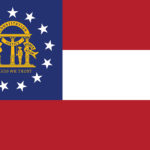 Georgia: Since 2023, part of a controversial Georgia election law banning food and water from being distributed to voters waiting in line has been on hold, as a lawsuit against the measure worked its way through the federal court system. But the ban on “line warming,” as the practice is sometimes called, may be allowed to take effect for the 2026 midterm elections after a three-judge panel on the 11th U.S. Circuit Court of Appeals ordered a lower court to reconsider its ruling in the case. The 11th Circuit Court’s ruling, which was released this week, vacated the 2023 ruling and remanded the case to U.S. District Judge J.P. Boulee due to a new precedent that was set by the U.S. Supreme Court in 2024. “We find that it would be inappropriate at this juncture to address the merits of the plaintiffs’ First Amendment challenge,” the panel wrote in Monday’s ruling, instructing the district court to conduct a type of legal analysis outlined in the recent Supreme Court ruling, Moody v. NetChoice, LLC. In 2023, Boulee upheld part of the ban on distributing refreshments to voters within a 150-foot “buffer zone” outside polling places. However, he temporarily blocked a provision banning volunteers from offering food and water within a “supplemental zone,” defined as 25 feet from any voter in line at a polling place, arguing that such activities count as “expressive conduct” and are therefore protected by the First Amendment. The appeals court heard arguments in the case this past August. “The 11th Circuit’s ruling reinforces a simple truth: Georgia has the right and the responsibility to shield voters from influence and interference at the polls,” Secretary of State Brad Raffensperger said in a statement, adding “our laws safeguard every Georgian’s right to free, fair, and fast elections.”
Georgia: Since 2023, part of a controversial Georgia election law banning food and water from being distributed to voters waiting in line has been on hold, as a lawsuit against the measure worked its way through the federal court system. But the ban on “line warming,” as the practice is sometimes called, may be allowed to take effect for the 2026 midterm elections after a three-judge panel on the 11th U.S. Circuit Court of Appeals ordered a lower court to reconsider its ruling in the case. The 11th Circuit Court’s ruling, which was released this week, vacated the 2023 ruling and remanded the case to U.S. District Judge J.P. Boulee due to a new precedent that was set by the U.S. Supreme Court in 2024. “We find that it would be inappropriate at this juncture to address the merits of the plaintiffs’ First Amendment challenge,” the panel wrote in Monday’s ruling, instructing the district court to conduct a type of legal analysis outlined in the recent Supreme Court ruling, Moody v. NetChoice, LLC. In 2023, Boulee upheld part of the ban on distributing refreshments to voters within a 150-foot “buffer zone” outside polling places. However, he temporarily blocked a provision banning volunteers from offering food and water within a “supplemental zone,” defined as 25 feet from any voter in line at a polling place, arguing that such activities count as “expressive conduct” and are therefore protected by the First Amendment. The appeals court heard arguments in the case this past August. “The 11th Circuit’s ruling reinforces a simple truth: Georgia has the right and the responsibility to shield voters from influence and interference at the polls,” Secretary of State Brad Raffensperger said in a statement, adding “our laws safeguard every Georgian’s right to free, fair, and fast elections.”
Fulton County Judge Scott McAfee dismissed the case against President Donald Trump and a group of alleged co-conspirators accused of attempting to overturn the 2020 presidential election in Georgia. McAfee’s dismissal marks the end of the last criminal case facing Trump related to that year’s election. Peter J. Skandalakis, executive director of the Prosecuting Attorneys’ Council of Georgia, requested the dismissal after concluding the case belonged in federal court. Skandalakis named himself prosecutor in the case this month after he said he could not find another attorney willing to take the case from embattled Fulton County District Attorney Fani Willis. A Fulton County grand jury indicted Trump and 18 co-defendants in 2023, but Willis was removed from the case in 2024 amid questions of a conflict of interest stemming from a romantic relationship with Nathan Wade, a special prosecutor she hired for the case. Four of the alleged co-conspirators pleaded guilty and agreed to testify against Trump and the other defendants. Skandalakis did not express sympathy with the view, still espoused by Trump and allies, that the 2020 election had been stolen or rigged. “Despite overwhelming evidence to the contrary, millions of citizens and hundreds of politicians continued to make unsubstantiated claims of election fraud,” he wrote. “In response, the Secretary of State undertook extensive audits to verify the vote count and demonstrate that no substantial voter fraud had occurred. Yet, despite these efforts and the evidence confirming a fair election, many individuals continue to believe—and may never be convinced otherwise—that the 2020 presidential election was stolen.”
Federal District Court Judge Steven D. Grimberg this week considered whether to dismiss a lawsuit challenging provisions of a 2024 state elections law that changed where homeless voters could receive election mail and strengthened the ability of activists to challenge the eligibility of voters. The consolidated suit seeks to overturn that voter eligibility challenge law, which has further empowered conservative activists, who have lodged more than 100,000 registration challenges since 2021. County election boards have rejected most of those efforts. The law allows county residents to file voter eligibility challenges with county election boards if a voter registers in another state, at a nonresidential address or claims a homestead exemption in another jurisdiction. Grimberg, asked whether the advocacy groups bringing the suit have constituents who have been directly affected by the eligibility challenge provisions in Senate Bill 189. Attorney Bryan Tyson, who represents the secretary of state and the State Election Board, argued that the advocacy groups haven’t shown actual harm to their constituents. But that’s not the only part of SB 189 the voter advocacy groups are challenging. The lawsuit also contends another provision of SB 189 violates the rights of voters who are homeless. The state law requires homeless voters to pick up election mail at county election offices, which plaintiffs say makes it more difficult for voters who lack transportation. That provision is unnecessary and discriminatory, the plaintiffs contend. Grimberg didn’t give a clear date on when he expects to make any decisions but said he would make an order as soon as he could.
 Maryland: Anne Arundel County Circuit Judge Pamela K. Alban has dismissed a lawsuit brought by unaffiliated Maryland voters, who argued that the state’s closed primary elections infringe on their voting rights. In her ruling last week, Alban wrote that the state’s precedent is clear, based on prior cases that affirmed political parties’ rights to exclude unaffiliated voters from their primary elections. “While the Maryland Constitution and Declaration of Rights guarantee the right to vote in state elections, neither grants the right to vote in a political party’s primary without affiliating with that party,” Alban wrote. An attorney for the voters who brought the suit, Boyd Rutherford, the former lieutenant governor to Gov. Larry Hogan (R), vowed to appeal Alban’s ruling. The Maryland Attorney General’s Office declined to comment on the dismissal of the case. Alban’s ruling was expected to be appealed — no matter which side she landed on. She said as much during a late-October motions hearing in Annapolis. “I imagine no matter what I do, this may not be the end,” Alban told the courtroom then. The Maryland voters filed their lawsuit challenging Maryland’s system in May, and a few months later, the Maryland State Board of Elections, represented by the state attorney general’s office, filed a motion to dismiss the case on various grounds. During a late October hearing in Annapolis, Alban ruled partially in favor of the aggrieved voters, determining that they had legal standing to sue. But Alban waited to rule on the merits of the case, and to determine whether the voters had stated a claim that could proceed. During her questioning, Alban hinted that she was skeptical of the voters’ case. In their arguments, attorneys for the voters tried to make the argument that their case was distinct from two prior Maryland Supreme Court decisions that validated closed primaries: Hennegan v. Geartner in 1946 and Suessman v. Lamone in 2004. But Alban disagreed. “Plaintiffs’ constitutional claims fall squarely within the scope of the holdings in Seussmann and Hennegan. They assert rights that, under Maryland law, they do not possess,” she wrote.
Maryland: Anne Arundel County Circuit Judge Pamela K. Alban has dismissed a lawsuit brought by unaffiliated Maryland voters, who argued that the state’s closed primary elections infringe on their voting rights. In her ruling last week, Alban wrote that the state’s precedent is clear, based on prior cases that affirmed political parties’ rights to exclude unaffiliated voters from their primary elections. “While the Maryland Constitution and Declaration of Rights guarantee the right to vote in state elections, neither grants the right to vote in a political party’s primary without affiliating with that party,” Alban wrote. An attorney for the voters who brought the suit, Boyd Rutherford, the former lieutenant governor to Gov. Larry Hogan (R), vowed to appeal Alban’s ruling. The Maryland Attorney General’s Office declined to comment on the dismissal of the case. Alban’s ruling was expected to be appealed — no matter which side she landed on. She said as much during a late-October motions hearing in Annapolis. “I imagine no matter what I do, this may not be the end,” Alban told the courtroom then. The Maryland voters filed their lawsuit challenging Maryland’s system in May, and a few months later, the Maryland State Board of Elections, represented by the state attorney general’s office, filed a motion to dismiss the case on various grounds. During a late October hearing in Annapolis, Alban ruled partially in favor of the aggrieved voters, determining that they had legal standing to sue. But Alban waited to rule on the merits of the case, and to determine whether the voters had stated a claim that could proceed. During her questioning, Alban hinted that she was skeptical of the voters’ case. In their arguments, attorneys for the voters tried to make the argument that their case was distinct from two prior Maryland Supreme Court decisions that validated closed primaries: Hennegan v. Geartner in 1946 and Suessman v. Lamone in 2004. But Alban disagreed. “Plaintiffs’ constitutional claims fall squarely within the scope of the holdings in Seussmann and Hennegan. They assert rights that, under Maryland law, they do not possess,” she wrote.
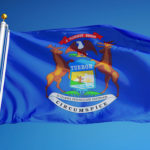 Michigan: Muhith Mahmood, the candidate who lost the Nov. 5 Hamtramck mayoral election by just six votes, is suing both the city and the Wayne County Board of Canvassers to have more than three dozen uncounted votes included in the final total. Due to what election officials have said was human error, 37 absentee ballots in Hamtramck were separated from the others and not counted on election night. When the ballots were discovered — opened, but still in their envelopes — in the city clerk’s office the following day, they were immediately sealed and taken to the county elections department. But Hamtramck Clerk Rana Faraj later said three non-election officials had walked into the clerk’s sealed office on election night before the ballots were discovered, effectively breaking the chain of custody for those ballots and raising questions about their security. The Wayne County Board of Canvassers ultimately deadlocked on whether to count the ballots, resulting in their exclusion from the official results. Not counting those ballots is “unconstitutional disenfranchisement,” Mahmood’s attorney, Mark Brewer, wrote in the lawsuit filed last week in the Third Judicial Circuit of Michigan, arguing that either the ballots should be counted or the 37 voters should be allowed to cast new ballots. The lawsuit is also filed on behalf of the 37 voters, whose names have not been made public.
Michigan: Muhith Mahmood, the candidate who lost the Nov. 5 Hamtramck mayoral election by just six votes, is suing both the city and the Wayne County Board of Canvassers to have more than three dozen uncounted votes included in the final total. Due to what election officials have said was human error, 37 absentee ballots in Hamtramck were separated from the others and not counted on election night. When the ballots were discovered — opened, but still in their envelopes — in the city clerk’s office the following day, they were immediately sealed and taken to the county elections department. But Hamtramck Clerk Rana Faraj later said three non-election officials had walked into the clerk’s sealed office on election night before the ballots were discovered, effectively breaking the chain of custody for those ballots and raising questions about their security. The Wayne County Board of Canvassers ultimately deadlocked on whether to count the ballots, resulting in their exclusion from the official results. Not counting those ballots is “unconstitutional disenfranchisement,” Mahmood’s attorney, Mark Brewer, wrote in the lawsuit filed last week in the Third Judicial Circuit of Michigan, arguing that either the ballots should be counted or the 37 voters should be allowed to cast new ballots. The lawsuit is also filed on behalf of the 37 voters, whose names have not been made public.
Attorney Stefanie Lambert and former Adams Township Clerk Stephanie Scott are headed to trial over allegations they wrongfully accessed voting data in a failed attempt to prove the 2020 election was rigged against President Donald Trump. A district court judge bound the pair over for trial, according to Attorney General Dana Nessel’s office. They face eight cumulative charges, the bulk of which are felonies. Nessel first charged Scott and Lambert in May 2024. Scott and Lambert did not directly respond to requests for comment. But in a statement provided through attorney Dan Hartman, Lambert argued District Court Judge Megan Stiverson failed to address questions of law raised in Scott’s closing arguments, suggesting an appeal is likely.
The Republican National Committee is suing Secretary of State Jocelyn Benson, alleging that state election law and guidance from her office violate the state Constitution by allowing non-Michigan residents to vote in elections. The suit brought by the RNC targets those who haven’t lived in the state but are the spouses of military and overseas Michigan voters and children born to residents of the state. Lawyers for the RNC say provisions around overseas absentee voting in state law, further defined by the state’s elections manual, allow these individuals to vote in Michigan elections despite never having lived in the state. RNC lawyers say this is unconstitutional, as the state Constitution requires a voter to have lived in the state for at least six months, though lawmakers can reduce this requirement or waive it for former residents. Benson spokesperson Angela Benander called the lawsuit the latest attempt by the RNC to “spread distrust in Michigan’s secure and fair elections.”
Jack Burkman and Jacob Wohl, two conservative activists who pleaded no contest to orchestrating a series of robocalls aimed at suppressing the vote of Black residents in Detroit, were sentenced to one year of probation by a Wayne County judge. Burkman and Wohl were initially charged with actions aimed at suppressing the vote during the 2020 general election. The no contest pleas and the subsequent sentencing agreement were hashed out by the defendants’ attorneys and the Wayne County 3rd Circuit Court. The Department of Attorney General was not involved in the agreement. Michigan Attorney General Dana Nessel, in a statement, said that Burkman and Wohl engaged in conduct that “used every racist dog whistle – fear of incarceration, fear of the government and fear of one’s benefits being taken away – to steal. “While on probation, if they engage in these types of criminal behaviors, they will be held to account here in Michigan,” Nessel said. “We all are aware, and this court has made these defendants aware, that continuing to engage in criminal conduct while on probation is a violation, for which the department will be ever vigilant about bringing to the attention of their probation agents and this court. If they willingly choose to engage in the types of repulsive behaviors they have gained notoriety for, this court and my department will be watching.”
 Mississippi: Testimony concluded this week in a case challenging the results of the mayoral election in Mount Olive last summer. Special appointed Judge Lamar Pickard now is expected to make a ruling in a couple of weeks. Former Mount Olive alderwoman Marcia Hull is contesting her loss in the June 3 election to incumbent mayor Cliff Kelly. Hull is suing Kelly, Mount Olive City Clerk Breyon Magee and the city’s election commission. Hull’s suit alleges numerous voting irregularities, mainly involving the validating and counting of absentee ballots. “We have systemic failures (and) several statutory violations,” Hull’s attorney, ScherriePrince said. Nearly two dozen witnesses testified over three days. All twelve testified they voted absentee and cast their ballots for Kelly. Attorney Alan Buffington, who is representing Breyon Magee and the election commission, said in his closing statement that Hull had failed to prove any of her allegations. “There is no basis for this lawsuit,” he said. Pickard gave defense and plaintiff’s attorneys until Dec. 15 to submit case summaries to the court.
Mississippi: Testimony concluded this week in a case challenging the results of the mayoral election in Mount Olive last summer. Special appointed Judge Lamar Pickard now is expected to make a ruling in a couple of weeks. Former Mount Olive alderwoman Marcia Hull is contesting her loss in the June 3 election to incumbent mayor Cliff Kelly. Hull is suing Kelly, Mount Olive City Clerk Breyon Magee and the city’s election commission. Hull’s suit alleges numerous voting irregularities, mainly involving the validating and counting of absentee ballots. “We have systemic failures (and) several statutory violations,” Hull’s attorney, ScherriePrince said. Nearly two dozen witnesses testified over three days. All twelve testified they voted absentee and cast their ballots for Kelly. Attorney Alan Buffington, who is representing Breyon Magee and the election commission, said in his closing statement that Hull had failed to prove any of her allegations. “There is no basis for this lawsuit,” he said. Pickard gave defense and plaintiff’s attorneys until Dec. 15 to submit case summaries to the court.
 New York: New York State Supreme Court Justice David B. Cohen denied Fox’s motion to pause the $2.7 billion defamation lawsuit brought by voting machine company Smartmatic until newly filed federal corruption charges against the voting technology company are handled. “I don’t find that there’s good cause for a stay,” Cohen said, ruling against Fox’s request to halt proceedings in Smartmatic’s 2021 civil defamation case until the federal indictment is resolved. “This would cause undue delay.” With no stay in effect, Smartmatic’s case is scheduled to advance arguments to summary judgment next week. Smartmatic sued Fox Corporation and its right-wing news network in early 2021 over broadcasts that falsely claimed the company interfered in the 2020 presidential election.
New York: New York State Supreme Court Justice David B. Cohen denied Fox’s motion to pause the $2.7 billion defamation lawsuit brought by voting machine company Smartmatic until newly filed federal corruption charges against the voting technology company are handled. “I don’t find that there’s good cause for a stay,” Cohen said, ruling against Fox’s request to halt proceedings in Smartmatic’s 2021 civil defamation case until the federal indictment is resolved. “This would cause undue delay.” With no stay in effect, Smartmatic’s case is scheduled to advance arguments to summary judgment next week. Smartmatic sued Fox Corporation and its right-wing news network in early 2021 over broadcasts that falsely claimed the company interfered in the 2020 presidential election.
 Texas: Texas officials asked a U.S. Fifth Circuit Court of Appeals panel this week to reverse a federal judge’s ruling blocking them from enforcing a state law banning paid political canvassing in the presence of a mail-in ballot. Texas instituted the ban in 2021 as part of Senate Bill 1. The ban prohibits canvassers from receiving “compensation or other benefit” for providing “vote harvesting services,” defined as an “in-person interaction with one or more voters, in the physical presence of an official ballot or a ballot voted by mail, intended to deliver votes for a specific candidate or measure.” A violation of this provision is a felony punishable by up to 10 years in prison and a fine of up to $10,000. As part of a broader case challenging various provisions of SB 1, a coalition of advocacy groups brought suit to block enforcement of the vote harvesting ban. They claimed the provision is unclearly worded and that, as a result, they’d been forced to scale back their in-person voter outreach efforts for fear of accidentally violating it. In September 2024, U.S. District Judge Xavier Rodriguez of the Western District of Texas permanently enjoined the Texas secretary of state, the Texas attorney general and the district attorneys for several Texas counties from enforcing the harvesting ban, finding that it violates the First Amendment and is unconstitutionally vague. A separate Fifth Circuit panel stayed Rodriguez’s ruling to avoid changes to election laws close to the 2024 election. Texas Deputy Solicitor General William Cole told the panel that the state is allowed to make “reasonable efforts to ensure that the right of a voter to pass the ballot free of taint and intimidation and fraud is secure.”
Texas: Texas officials asked a U.S. Fifth Circuit Court of Appeals panel this week to reverse a federal judge’s ruling blocking them from enforcing a state law banning paid political canvassing in the presence of a mail-in ballot. Texas instituted the ban in 2021 as part of Senate Bill 1. The ban prohibits canvassers from receiving “compensation or other benefit” for providing “vote harvesting services,” defined as an “in-person interaction with one or more voters, in the physical presence of an official ballot or a ballot voted by mail, intended to deliver votes for a specific candidate or measure.” A violation of this provision is a felony punishable by up to 10 years in prison and a fine of up to $10,000. As part of a broader case challenging various provisions of SB 1, a coalition of advocacy groups brought suit to block enforcement of the vote harvesting ban. They claimed the provision is unclearly worded and that, as a result, they’d been forced to scale back their in-person voter outreach efforts for fear of accidentally violating it. In September 2024, U.S. District Judge Xavier Rodriguez of the Western District of Texas permanently enjoined the Texas secretary of state, the Texas attorney general and the district attorneys for several Texas counties from enforcing the harvesting ban, finding that it violates the First Amendment and is unconstitutionally vague. A separate Fifth Circuit panel stayed Rodriguez’s ruling to avoid changes to election laws close to the 2024 election. Texas Deputy Solicitor General William Cole told the panel that the state is allowed to make “reasonable efforts to ensure that the right of a voter to pass the ballot free of taint and intimidation and fraud is secure.”
Texas is back to using its 2025 congressional map, at least temporarily, after Supreme Court Justice Samuel Alito granted the state’s request to pause a court ruling that would have required using the lines legislators drew in 2021. The high court has not yet decided what map Texas should use while the court battle over the legality of the map plays out over the coming weeks and months; Friday’s ruling is a short-term pause while they make that decision. President Donald Trump pushed Texas to redraw its map over the summer, hoping to secure five additional GOP seats to shore up the party’s narrow majority in the U.S. House through the midterms. On November 18, a federal court barred Texas from using the new map for 2026, saying there was evidence state lawmakers had racially gerrymandered in redrawing the lines. Galveston District Judge Jeffrey Brown, a Trump appointee, authored the opinion ordering Texas to return to its 2021 map, while 5th U.S. Circuit Court of Appeals Judge Jerry Smith vociferously dissented. Alito requested that the plaintiffs respond to the motion by the end of the day Monday. The Dec. 8 candidate filing deadline is fast approaching, which the state made clear to the justices in its petition.
 Utah: In a flurry of more court filings last week, 3rd District Judge Dianna Gibson was again tasked with sorting through more issues with Utah’s congressional boundaries after Utah’s top election officials raised some technical issues with the new map. Split homes and other boundary issues in Sandy, Cottonwood Heights, Alpine, Highland, Orem, Huntsville and Summit County led the lieutenant governor’s office to ask the court for clarifications to Utah’s new map ahead of implementing it for the 2026 elections. Meanwhile, attorneys for the Utah Legislature — which continues to protest the state’s court-ordered redistricting process as a violation of the separation of powers between the legislative and judicial branches — argued the lieutenant governor’s request for boundary clarifications “amplifies how these proceedings have transgressed the Utah and U.S. Constitutions,” they wrote in court filings. “Plaintiffs’ counsel can instruct the Lieutenant Governor how to resolve those issues. But in doing so, the constitutional problem — the denial of the Legislature’s constitutional authority to redistrict — only becomes more obvious,” legislative attorneys wrote. In response to the Legislature’s complaints against the new map, attorneys for the plaintiffs in the case argued that the boundary issues identified by the lieutenant governor — which were largely the result of annexations that took place after the 2020 census — were not out of the ordinary in redistricting and that the Legislature’s attorneys didn’t follow Utah’s rules of civil procedure when requesting the stay. After hearing recommendations from both the lieutenant governor and the plaintiffs to remedy the boundary issues, Gibson on Friday issued an order implementing a minor fix to move a single home in Sandy from District 1 to District 4 to prevent a one-home precinct, which would have resulted in voter privacy issues. As for the boundary issues, Gibson deferred to the lieutenant governor’s discretion to make boundary clarifications when there is uncertainty. “The Court notes that Plaintiffs have suggested an approach to making determinations with respect to those issues and the Lieutenant Governor may take those suggestions into consideration when making determinations for implementation,” the judge wrote. “Likewise, as the Lieutenant Governor notes, the Utah Code grants discretion in making determinations should questions subsequently arise.”
Utah: In a flurry of more court filings last week, 3rd District Judge Dianna Gibson was again tasked with sorting through more issues with Utah’s congressional boundaries after Utah’s top election officials raised some technical issues with the new map. Split homes and other boundary issues in Sandy, Cottonwood Heights, Alpine, Highland, Orem, Huntsville and Summit County led the lieutenant governor’s office to ask the court for clarifications to Utah’s new map ahead of implementing it for the 2026 elections. Meanwhile, attorneys for the Utah Legislature — which continues to protest the state’s court-ordered redistricting process as a violation of the separation of powers between the legislative and judicial branches — argued the lieutenant governor’s request for boundary clarifications “amplifies how these proceedings have transgressed the Utah and U.S. Constitutions,” they wrote in court filings. “Plaintiffs’ counsel can instruct the Lieutenant Governor how to resolve those issues. But in doing so, the constitutional problem — the denial of the Legislature’s constitutional authority to redistrict — only becomes more obvious,” legislative attorneys wrote. In response to the Legislature’s complaints against the new map, attorneys for the plaintiffs in the case argued that the boundary issues identified by the lieutenant governor — which were largely the result of annexations that took place after the 2020 census — were not out of the ordinary in redistricting and that the Legislature’s attorneys didn’t follow Utah’s rules of civil procedure when requesting the stay. After hearing recommendations from both the lieutenant governor and the plaintiffs to remedy the boundary issues, Gibson on Friday issued an order implementing a minor fix to move a single home in Sandy from District 1 to District 4 to prevent a one-home precinct, which would have resulted in voter privacy issues. As for the boundary issues, Gibson deferred to the lieutenant governor’s discretion to make boundary clarifications when there is uncertainty. “The Court notes that Plaintiffs have suggested an approach to making determinations with respect to those issues and the Lieutenant Governor may take those suggestions into consideration when making determinations for implementation,” the judge wrote. “Likewise, as the Lieutenant Governor notes, the Utah Code grants discretion in making determinations should questions subsequently arise.”
Opinions This Week
National Opinions: Citizenship ceremonies | Federal interference | Voting Rights Act | Vote by mail | Native American voting rights | Voter fraud | Ranked choice voting
Alaska: Ranked choice voting
Arizona: Election fraud
Colorado: Tina Peters, II
District of Columbia: Ranked choice voting
Florida: Orange County | Duval County
Georgia: Ranked choice voting | 2020 election case
Hawai’i: Election commission
Idaho: Voter rolls
Kansas: Voter fraud
Massachusetts: Ranked choice voting
Michigan: Election monitors
Minnesota: Ranked choice voting
Mississippi: Voter access
New Hampshire: New voting laws
New Mexico: Runoffs | Ranked choice voting | Local elections
New York: Election dates
North Carolina: Cumberland County, II | State Board of Elections
Ohio: Election legislation, II
South Dakota: Secretary of state, II
Texas: Poll workers
Washington: Ballot counting | Voter data
Available RFPs
Request for Proposals
Practice-Oriented Research to Improve Voter Registration and List Maintenance
 Maintaining secure, accurate, and accessible voter registration rolls is an ongoing challenge that has come under increased political scrutiny in recent years. Recognizing that challenge, the MIT Election Data + Science Lab (MEDSL) is pleased to announce that we are seeking to award $500,000 in grants to support research projects that aim to improve the security, accuracy, and accessibility of voter registration systems and list maintenance practices.
Maintaining secure, accurate, and accessible voter registration rolls is an ongoing challenge that has come under increased political scrutiny in recent years. Recognizing that challenge, the MIT Election Data + Science Lab (MEDSL) is pleased to announce that we are seeking to award $500,000 in grants to support research projects that aim to improve the security, accuracy, and accessibility of voter registration systems and list maintenance practices.
Through this new program, we seek to improve understanding of how the voter registration system currently operates, encourage innovation in adopting new approaches to list maintenance, and equip policymakers, administrators, and the public with reliable information about the system. We aim to inform practitioners and policymakers about current issues and close practice gaps. The program will focus on achieving immediate impact, examining practices that could be implemented quickly and illuminating current issues faced by policymakers and the public.
As part of our dedication to improving policymaking, practice, and understanding in this area, we are looking for projects that include a strong partnership component, aligning the goals of the research with the needs of election practitioners. More information about the program, as well as selection criteria and proposal guidelines, can be found in the full request for proposals on our website here.
While not required, we encourage those interested in applying to submit a brief letter of intent to medsl-grants@mit.edu by December 15, 2025. Proposals are due January 16, 2026. If you have any questions about the program or grant process, please contact us at medsl-grants@mit.edu.
Upcoming Events
2025 Alaska Association of Municipal Clerks Annual Meeting: When: December 7-10. Where: Anchorage.
25 Years After Bush v. Gore: Contested Elections Then and Now: Rice University’s Baker Institute for Public Policy and The Carter Center will co-host their fifth annual elections conference, “25 Years After Bush v. Gore: Contested Elections Then and Now,” at Rice University in Houston, Texas. Timed to coincide with the 25th anniversary of the landmark Bush v. Gore Supreme Court decision, the 2025 convening will examine the state of contested elections in the United States — then and now — through a series of timely, solutions-oriented discussions. Building on the Baker-Carter partnership and the legacy of the 2005 bipartisan Commission on Federal Election Reform, this year’s program draws from recent joint publications — “The Carter Baker Commission: 16 Years Later” (2021) and “Guiding Principles for Election Administration” (2024). These reports anchor two major conference sessions: one assessing the implementation challenges of the Guiding Principles, and another unpacking the evolving legal and political implications of redistricting in a polarized electoral landscape. The opening panel will explore actionable strategies for safeguarding the integrity of U.S. elections, featuring insights from leading policy experts from the Bipartisan Policy Center, Issue One, the Edward M. Kennedy Institute for the United States Senate, and the Robert J. Dole Institute of Politics. Over lunch, key legal voices — including Ben Ginsberg, a central figure in the Bush v. Gore litigation — will revisit the historic 2000 dispute, tracing its influence on public trust in election outcomes. The afternoon session will take a closer look at how recent redistricting decisions are reshaping electoral competition and representation heading into 2026. As confidence in democratic institutions faces mounting threats, this conference will offer a critical forum for reflection, debate, and the advancement of bipartisan solutions to strengthen electoral credibility in the years ahead. When: December 8. Where: Houston and online.
Bush v. Gore and the State of U.S. Elections: For a generation, presidential races were blowouts. Every winner between 1980 and 1996 triumphed by at least 37 electoral college votes. It was a calmer time for U.S. elections. Landslides relegated conspiracy theories about contested elections to the fringes of U.S. politics. Then came 2000. The last polls showed a dead heat. On election night, the networks called it prematurely for Al Gore, then retracted their calls, then called it prematurely for George W. Bush, and retracted again. Judges were called in to settle the mess. Ultimately, five Supreme Court justices, all appointed by Republican presidents, put an end to the recount and effectively declared Bush the winner. The fractured opinions were a maze of disagreements. The justices on the winning side warned that the opinion should not be cited as precedent. Their reasoning flummoxed legal scholars — even those who agreed with the outcome. Join The Brennan Center on Tuesday, December 9, at 2 p.m. ET for a live virtual event to discuss the legacy of Bush v. Gore. Did the case change the relationship between Americans and their elections, and between elections and the courts? Was it merely a symptom of broader changes in American politics? Or was the decision a historical anomaly with no lasting impact on U.S. law and politics? When: December 9, 2pm Eastern. Where: Online
Alabama Association of Municipal Clerks & Administrators Fall Conference: When: December 9-12. Where: Online & Tuscaloosa.
Strengthening Trust and Professionalism in Election Administration: Ethics, Communication, and Workforce Development: Join The Elections Group and the Bipartisan Policy Center on Wednesday, December 10, at 12 p.m. ET for a conversation highlighting three important areas of emerging research that can strengthen trust, communication, and professional practice in election administration. We’ll explore findings from a national needs assessment examining what election officials are looking for in ethics training and support. We’ll also discuss a new pilot training model designed to help local officials address inaccurate or misleading claims, manage tense interactions, and foster constructive dialogue in their communities. Together, these insights point toward practical steps election offices can take to build stronger, more resilient, and more trusted operations. When: December 10, 12pm Eastern. Where: Online
Launching RCV Maps 2025: The RCV Resource Center is proud to release the 2025 version of the RCV Maps Assessments. Join our policy team, Chris Hughes and Ryan Kirby, to learn about the updates in the 2025 version, national progress, and the next steps for RCV Maps! When: December 10, 3pm Eastern. Where: Online.
Election Cybersecurity Summit: Protecting Democracy in a Shifting Landscape: Join us for the Election Cybersecurity Summit: Protecting Democracy in a Shifting Landscape, an event hosted by the Brennan Center for Justice, Common Cause New York, the New York City Bar Association’s Election Law Committee, and the UC Berkeley Center for Long-Term Cybersecurity and featuring Sen. Kristen Gonzalez, chair of the New York State Senate’s Elections Committee. The Election Cybersecurity Summit will bring together state and local officials, technologists, and civic leaders for a nonpartisan discussion about the urgent threats facing our election infrastructure. New York is set to play a critical role as an electoral battleground in 2026. This event will focus on innovative state and local solutions to national cybersecurity challenges and emphasize collaboration across agencies, sectors, and political lines. Participants will explore how New York can build resilient, replicable models for election security in the absence of strong federal support, counter the politicization of cybersecurity, and engage nonpartisan experts and corporate partners. This summit will be an essential conversation for all who believe in protecting democracy through proactive and united effort. When: December 11, 9am to 4pm Eastern. Where: Online
JEOLC 2026: The Election Center will host the 2026 JEOLC conference at the Ritz Carlton in Pentagon City, Virginia from January 6-10. One CERA renewal class will be offered. Please visit the Election Center website for more information and to register when it’s available.
Southern Political Science Association 2026 Conference: Experience Southern’s Hospitality at the 2026 SPSA Conference in New Orleans! The 2026 SPSA Preliminary Program is available HERE. Updates will be made periodically to the program, so please refer to this page for the most updated version available. When: January 14-17. Where: New Orleans
iGO Midwinter Conference: The International Association of Government Officials will hold its Midwinter Conference in Albuquerque, New Mexico from January 19-23, 2026. Please visit the iGO website for more information and to register.
2026 NASS Winter Conference: The National Association of Secretaries of State will hold its 2026 Winter Conference in Washington, DC from January 28-31. Please refer to the NASS website for more information about the event and to register.
2026 NASED Winter Conference: Twice a year, National Association of State Election Directors members gather to discuss the latest developments in election administration. Members of the public are welcome to attend at the non-member registration rate. Please refer to the NASED website for information about the 2026 Winter Conference. When: Feb. 1-3, 2026. Where: Washington, DC.
2026 NACo Legislative Conference: The National Association of Counties will hold its 2026 Legislative Conference in Washington, DC from February 21-24, 2026. Please visit the NACo website for more information about the event and to register.
Election Center February Workshop: Focusing on interaction and sharing of practices selected by members to receive People’s Choice Awards, the February Workshops formalize those critical conversations that happen at conferences during meals, in the hallways, & the hotel lobby. The agenda augments the award-winning member presentations with applicable research and resources.Two CERA core courses and one renewal will be held following the workshop. When: February 25-27. Where: Jacksonville, Florida.
Election Center April Workshop: In April, the focus is on state associations and state trainings both by modeling conference formats, facilitation techniques, and potential content resources. The Coalition of Election Association Leaders (CEAL) guides state groups in their maturation process with mentorship and networking opportunities. When: April 22-24. Where: Chicago.
Job Postings This Week
electionlineWeekly publishes election administration job postings each week as a free service to our readers. To have your job listed in the newsletter, please send a copy of the job description, including a web link to mmoretti@electionline.org. Job postings must be received by 5pm on Wednesday in order to appear in the Thursday newsletter. Listings will run for three weeks or till the deadline listed in the posting.
Certification Project Manager, VotingWorks– Your goal is to assist the Head of Compliance and Government Partnerships and the VotingWorks team in achieving Federal – and state – certification. Certification in the election space refers to testing voting systems – and sometimes other election technology – to a standard identified by the EAC (currently the Voluntary Voting System Guidelines 2.0) and/or additional requirements identified by a state. For federal certification, we work with a federally accredited Voting System Test Laboratory and the US Election Assistance Commission to gain certification. For states, there is some variability in certification programs, but those that require certification have a process and requirements set out that we would need to meet. The successful candidate will be extremely detail oriented, but also be able to see the forest from the trees, be a strong project manager, and also be able to build rapport with stakeholders, both internal and external. Salary: $104,000 – $150,000. Application: For the complete job listing and to apply, click here.
Democracy Dollars Program Manager– The City of Oakland Public Ethics Commission (PEC) is currently recruiting for the Democracy Dollars Program Manager. This management level position is primarily responsible for overseeing implementation of Oakland’s landmark Democracy Dollars public campaign financing program. Under this Program, all eligible Oakland residents will receive four $25 vouchers, which they may contribute to the City of Oakland or Oakland Unified School District candidate of their choice. The Program is expected to launch in 2028. Under the general direction of the Executive Director, the Program Manager is responsible for developing and carrying out all policies, procedures, and logistics necessary for implementing the Program; overseeing the design and performance of technology systems to facilitate voucher redemption; planning and implementing a public education campaign to promote broad and inclusive participation in the Program; and hiring and managing all Program staff. The Program Manager will also provide oversight over the Commission’s other regulatory programs, including its campaign finance filing officer and lobbyist disclosure filing officer programs. The ideal candidate will have experience administering complex government programs and specific experience relating to administering programs relating to, or ensuring compliance with, laws relating to campaign finance, campaign public financing, election administration, and/or government integrity. A master’s degree or law degree, as well as a passion for government integrity and effectiveness, are strongly desired. The PEC is an independent agency within the City of Oakland with a dual mission to “promote fairness, openness, honesty, and integrity in City government” and to “promote a more inclusive, representative, and accountable democracy in Oakland.” The Commission is responsible for enforcing Oakland’s government ethics, campaign finance, transparency, and lobbyist registration laws. The Commission also administers the City of Oakland’s public campaign financing programs to prevent corruption or its appearance and to ensure wealth, or access to networks of wealth, are not prerequisites to running for office in the City of Oakland. In 2022, the voters passed Measure W to create the Democracy Dollars Program to strengthen the City’s existing public financing programs. Join us in our mission to uphold the values of integrity, accountability, and inclusivity within Oakland government. If you are ready to make a meaningful impact, we encourage you to apply! Salary: $149,409.72 – $183,462.00 Annually. Deadline: December 8. Application: For the complete job listing and to apply, click here.
Deputy Director, Geauga County, Ohio– The Geauga County Board of Elections is seeking applicants for the position of Director or Deputy Director. The applicant must be registered as a Republican voter in Ohio and be a resident of Geauga County within 30 days of being hired. MINIMUM QUALIFICATIONS available here (section 2.04). Successful applicant will be subject to a criminal background check. Deadline: Applicants must submit a cover letter, resume, and Secretary of State Form 307, no later than 4:00 p.m., December 22, 2025. Application: Mail to: The Geauga County Board of Elections 12611 Ravenwood Dr., Suite 004 Chardon, OH 44024 or email: mlane@geauga.oh.gov.
Director of Election Information Technology, King County, Washington– King County Elections (KCE) seeks a dynamic and visionary leader to serve as our Director of Elections Information Technology (Division Director – Technology). The Director of Elections Information Technology will report to the elected Director of Elections, serve as a member of the Department’s Leadership Team, and lead and support a highly skilled team to achieve excellence in election technology, security, and administration. This role will play a key part in developing departmental goals, strategies, and initiatives, driving the adoption of new technologies within KCE, and fostering a culture of innovation and collaboration. This is a unique opportunity to inspire and empower a team, drive the adoption of new technologies within KCE, identify opportunities to bring innovation to the forefront of our operations, and significantly impact the future of election administration in one of the most populous and diverse counties in the United States. This is a hybrid position that performs work remotely and on-site. As a leadership team member, this position is expected to work on-site frequently during active elections. Salary: $166,509 – $211,060. Application: For the complete job listing and to apply, click here.
Election Administrator, Victoria County, Texas–Performs vital work planning, organizing, coordinating, and managing federal, state, and local elections plus all facets of voter registration processes in accordance with the Texas Election Code, and other applicable federal, state, or local laws and regulations, including administrative direction from the Texas Secretary of State. Ensuring smooth elections operations including inputting and maintaining voter registration databases, training and supervising poll works, preparing staffing and logistics for voting, administering early voting by mail and in-person, supervising balloting & tabulation, and preparing final canvassing reports. Coordinating closely with political party chairs in conducting primary, runoff, and general elections while guaranteeing impartiality. Preserving voter registration applications, official election documents, and candidate campaign filings/disclosures. Salary: $61,494 – $76,868. Application: For the complete job listing and to apply, click here.
Elections Director, New Hanover County, North Carolina– New Hanover County, located on the North Carolina coast with a population of over 240,000 and approximately 183,400 registered voters, is seeking an Elections Director to become part of a dynamic, professional county organization with a clear vision as a vibrant, prosperous, diverse coastal community, committed to building a sustainable future for generations to come. The Elections Director will be responsible for planning and directing overall operations of the office of the New Hanover County Board of Elections in the preparation for and execution of all federal, state, and municipal elections in New Hanover County. The next Director will possess extensive knowledge of electoral procedures and policies as set forth in the NC General Statutes and will demonstrate critical thinking skills along with analytical and problem-solving abilities. Salary: $79,291 – $134,795. Application: For the complete job listing and to apply, click here.
Elections Manager, Kalamazoo County, Michigan–The purpose of this job is to manage and supervise all election operations within Kalamazoo County under the direction of the County Clerk and Chief Deputy Clerk. The Elections Manager ensures compliance with federal, state, and local election laws while coordinating with various jurisdictions to conduct fair, accurate, and transparent elections. This position is responsible for leading all phases of election planning, execution, and post-election auditing, supervising division staff, and serving as a liaison to election-related boards, commissions, local clerks, and the State of Michigan. Salary: $81,744- $95,638. Application: For the complete job listing and to apply, click here.
Deputy Director, Surrey County, North Carolina– The County of Surry is accepting applications for the full-time position of Deputy Director of Elections. This position assists the Elections Director with managing the daily operations of the Board of Elections office and with the preparation and conduct of elections in accordance with federal, state, and local laws. The Deputy Director also serves as Acting Director in the Director’s absence. Key responsibilities include planning, preparing, and conducting all elections; supporting candidate filing, ballot preparation, absentee and early voting, and election-day logistics; overseeing the testing, maintenance, and certification of voting equipment; assisting with reconciliation and post-election reporting; maintaining the voter registration database and conducting list maintenance; supervising and training precinct officials; coordinating polling places and election supplies; preparing training materials and forms; and ensuring compliance with election laws and security protocols. The position also requires excellent customer service to voters, candidates, political parties, and the public, along with representing the department at trainings and community events. Other duties may be assigned as needed. Salary: $41,508 – $69,124. Application For the complete job listing and to apply, click here.
Election Operations & Workforce Manager, Charleston County, South Carolina– The Board of Voter Registration and Elections is an award-winning organization dedicated to excellence in electoral processes. Our mission is to daily serve the Charleston County voting constituency with Vigilance, Objectivity, and Transparency in a manner that promotes due diligence Excellence in all aspects of Elections Management. We are committed to continuous improvement, innovative practices, and exceptional service to our community, ensuring every voter’s voice is heard. Are you driven by a passion for democracy and civic engagement? Join the Board of Voter Registration and Elections as the Election Operations and Workforce Manager and play a critical role in delivering seamless, fair, and accessible elections. Key Responsibilities: Poll Worker Recruitment and Management; Polling Location Management; Liaison and Community Engagement; Support for Election Operations on Election Day and Early Voting; and Team Leadership. Salary: $68,140 – $89,252. Application: For the complete job listing and to apply, click here.
Legislative Director, Finance, Pensions & Intergovernmental Affairs (FPIGA), NACo – We are seeking a highly motivated individual to serve as the Legislative Director for Finance, Pensions and Intergovernmental Affairs (FPIGA). This position also serves as NACo’s liaison to the Local Government Legal Center (LGLC). This position is responsible for developing and executing advocacy strategies, analyzing legislation and regulations, and engaging with federal officials and member counties on a portfolio including tax, finance, municipal bonds, public pensions, intergovernmental relations, and local governance legal issues. The Legislative Director will ensure counties have a strong voice in key federal fiscal and intergovernmental decisions and lead NACo’s engagement in legal advocacy through the LGLC. Salary: $100,000-$110,000. Application: For the complete job listing and to apply, click here.
Organizer, Minnesota– We are looking for a creative and collaborative Organizer to join the Common Cause team in Minnesota. This is a key role supporting our organizing and outreach programs and promoting civic engagement across the state. This is a full-time role reporting to the Executive Director, Minnesota and is based in Minnesota, with a preference for candidates located in Olmsted County or St. Cloud, with an expectation to travel around Minnesota at least 2 days per week, with a maximum of 5 days a calendar week during the legislative session, and peak summer engagement season. This is a termed position, starting on November 1, 2025 and ending October 31, 2027. Salary: $63,860 – $80,340 a year. Application: For the complete job listing and to apply, click here.
Press Secretary, Connecticut secretary of state– The State of Connecticut, Secretary of the State (SOTS) is seeking a skilled, mission-driven communicator to serve as Press Secretary (Executive Assistant 1). This role leads media outreach, shapes messaging, and supports communication across all divisions, including Elections and Business Services. The ideal candidate writes with the clarity of a journalist, thinks with the strategy of a communications professional, and thrives in a fast-paced environment where good judgment, accuracy, and creativity matter. The Press Secretary is the office’s media lead and primary storyteller. Working closely with the Communications Director, the Press Secretary helps execute a comprehensive communications strategy that elevates the work of the Secretary and the agency. Core responsibilities include managing day-to-day media relations, building relationships with reporters, drafting high-quality written materials, preparing the Secretary for media interactions, and supporting communications needs across Elections, Business Services, and other divisions. As part of the Executive Team, you’ll join a collaborative, high-performing group where the pace is quick, expectations are high, and the work truly matters. Salary: $75,000 – $85,000/year Deadline: December 4. Application: For the complete job listing and to apply, click here.
Regional Sales Director – Pacific West, Runbeck–The Regional Sales Director is responsible for leading high-value sales efforts, managing key client relationships, and driving revenue growth through strategic account development. This role requires a seasoned sales professional with a proven record of exceeding sales targets, developing new business opportunities, and nurturing long-term client partnerships. The Regional Sales Director acts as a trusted advisor to clients, aligning solutions with their business objectives while contributing to the company’s overall sales strategy and success. Territory will cover California, Nevada, Oregon, Washington, Alaska and Hawaii. Application: For the complete job listing and to apply, click here.
Remote Sales Director, SOE Software– SOE Software is seeking a driven Sales Director to expand our modernization and transparency solutions for state and local governments. In this full-cycle sales role, you’ll own the process from lead generation through contract signing. You’ll represent SOE at conferences and events, confidently starting conversations and building lasting relationships with government officials. By connecting our technology to outcomes like transparency, accessibility, and public trust, you’ll help election offices and public agencies better serve their communities. Application: For the complete job listing and to apply, click here.
Senior Director, Legislative Affairs, Common Cause– We are seeking a strategic, experienced, and mission-driven Senior Director, Legislative Affairs to lead our federal legislative advocacy work and our strategic approach to advocacy within our states to strengthen our democracy by holding power accountable. In this role, you will be responsible for developing and executing a dynamic federal lobbying strategy, managing high-level relationships with lawmakers and key partners, and building strategic alignment across Common Cause’s policy pillars and state teams. You will serve as a key thought partner in our cross-department campaigns and media efforts that include federal legislative components. This is a full-time role reporting to the Senior Vice President, Policy & Litigation; this role is based in Washington, DC, with an expectation to work in-person at least two days per week, up to five days per week during peak legislative periods, and travel at least four times per year. Salary: $128,750 – $144,200 a year. Application: For the complete job listing and to apply, click here.
Training Program Manager, Charleston County, South Carolina– Democracy works best when every election runs flawlessly—and that starts with exceptional training. As Training Manager for the Board of Voter Registration and Elections, you’ll empower our poll managers and staff to deliver elections that are fair, accessible, and trusted by every voter in Charleston County. The Board of Voter Registration and Elections is an award-winning organization dedicated to excellence in electoral processes. Our mission is to daily serve the Charleston County voting constituency with Vigilance, Objectivity, and Transparency in a manner that promotes due diligence Excellence in all aspects of Elections Management. We believe that people are the foundation of successful elections. That’s why training is not just a task—it’s a core function of our mission. When our teams are prepared, voters can be confident that their voice will be heard, and their ballot counted. As Training Manager, you are not simply teaching procedures—you are building trust in the democratic process. You will design and deliver training that helps every poll manager, staff member, and Board member understand the importance of their role, perform it with confidence, and meet the highest standards of service to our voters. Salary: $68,140.00 – $82,000.00 Annually. Application: For the complete job listing and to apply, click here.
Marketplace
electionline provides no guarantees as to the quality of the items being sold and the accuracy of the information provided about the sale items in the Marketplace. Ads are provided directly by sellers and are not verified by electionline. If you have an ad for Marketplace, please email it to: mmoretti@electionline.org